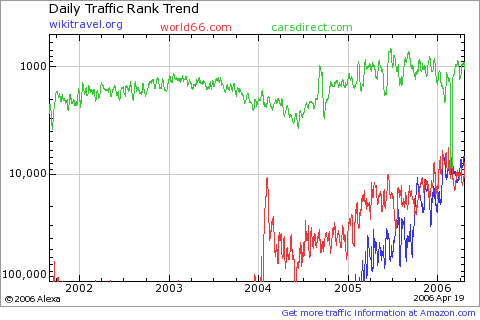Another excellent post from Tim Lee (two of many, just subscribe to TLF):
The oft-repeated (especially by libertarians) view that there’s no such thing as a free lunch is actually nonsense. Civilization abounds in free lunches. Social cooperation produces immense surpluses that have allowed us to become as wealthy as we are. Craigslist is just an extreme example of this phenomenon, because it allows social cooperation on a much greater scale at radically reduced cost. Craigslist creates an enormous amount of surplus value (that is, the benefits to users vastly exceed the infrastructure costs of providing the service). For whatever reason, Craigslist itself has chosen to appropriate only a small portion of that value, leaving the vast majority to its users.
As a political slogan I think of TANSTAAFL as applying only to transfers though perhaps others apply it overbroadly. Regardless the free lunches of which Lee writes are vastly underappreciated.
The strategy has another advantage too: charging people money for things is expensive. A significant fraction of the cost of a classified ad is the labor required to sell the ads. Even if you could automate that process, it’s still relatively expensive to process a credit card transaction. The same is true of ads. Which means that not only is Craigslist letting its users keep more of the surplus, but its surplus is actually bigger, too!
Charging money also enables taxation and encourages regulation. Replacement of financial transaction mediated production with peer production is a libertarian (of any stripe — substitute exploitation for taxation and regulation if desired) dream come true.
Put another way, that which does not require money is hard to control. I see advocacy of free software, free culture and similar as flowing directly from my desire for free speech and freedom and individual autonomy in general.
In the long run, then, I think sites that pursue a Craigslist-like strategy will come to dominate their categories, because they simply undercut their competition. That sucks if you’re the competitor, but it’s great for the rest of us!
Amen, though Craigslist, Wikipedia and similar do far more than merely undercut their competition.


